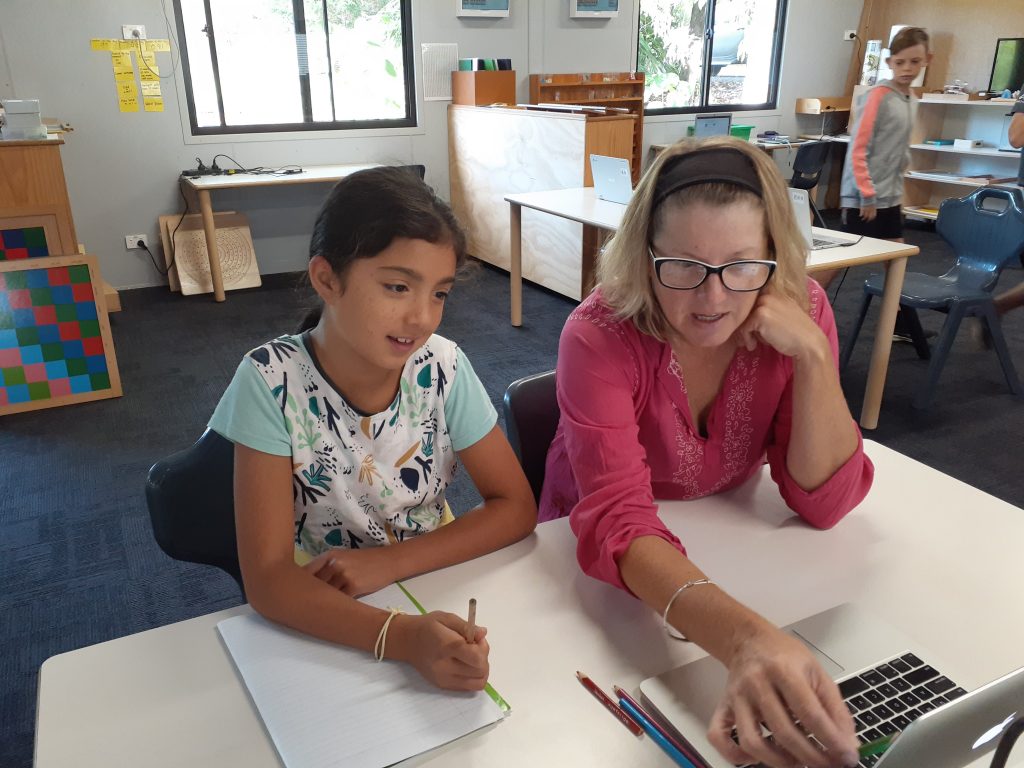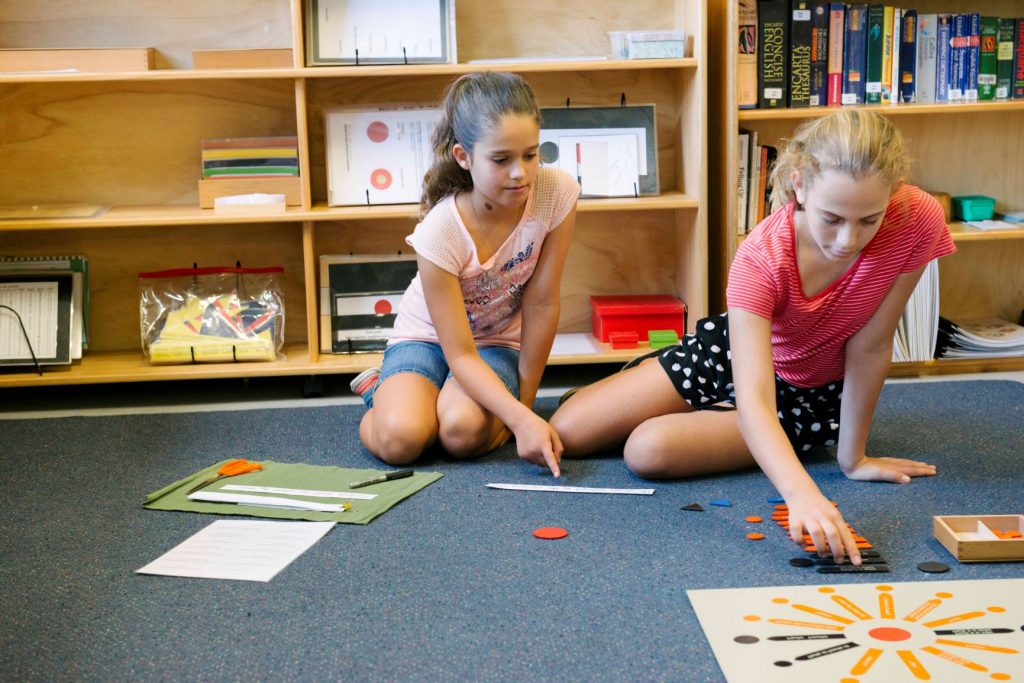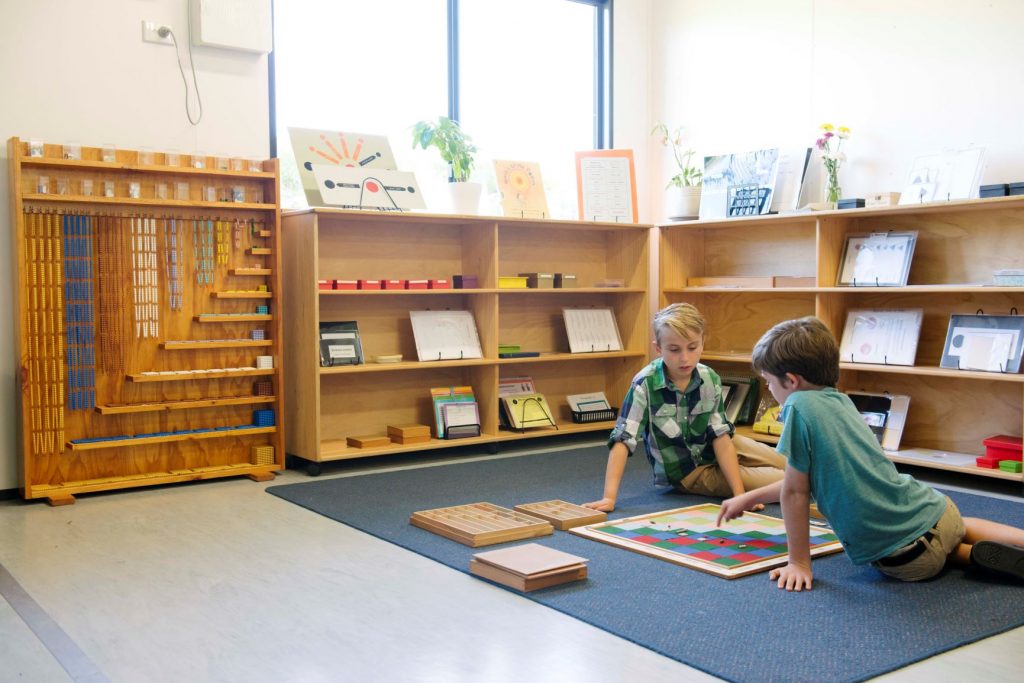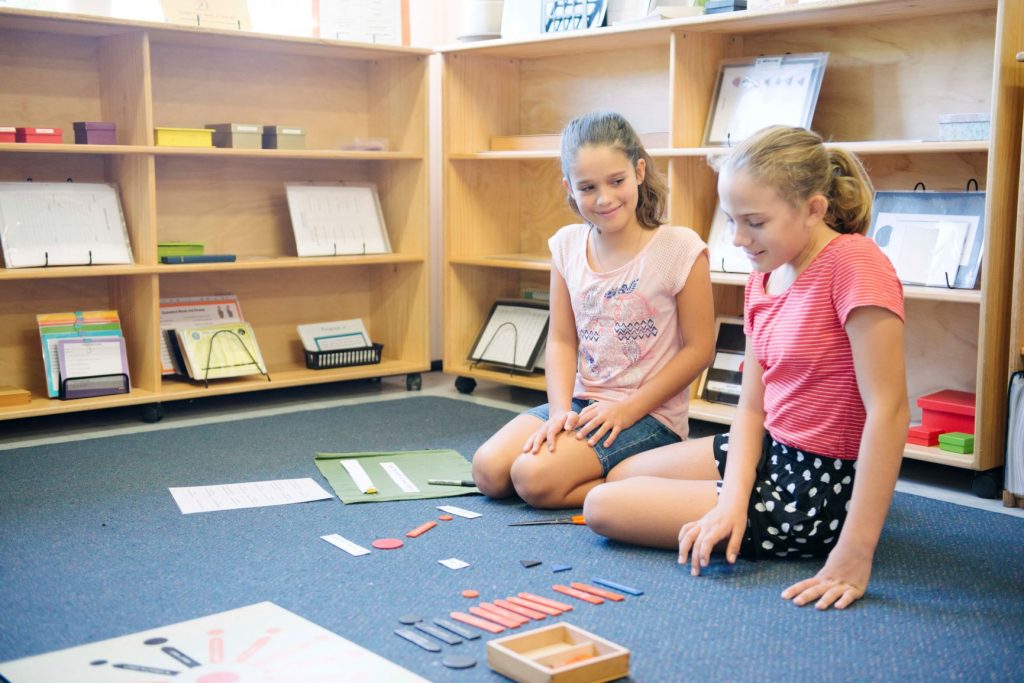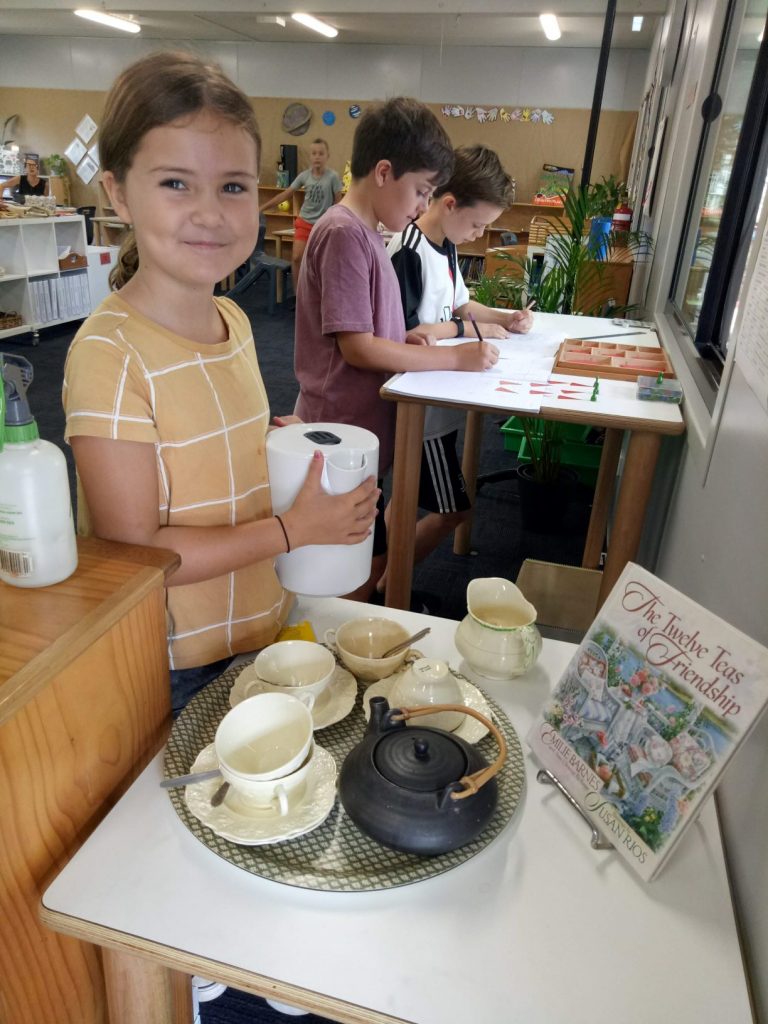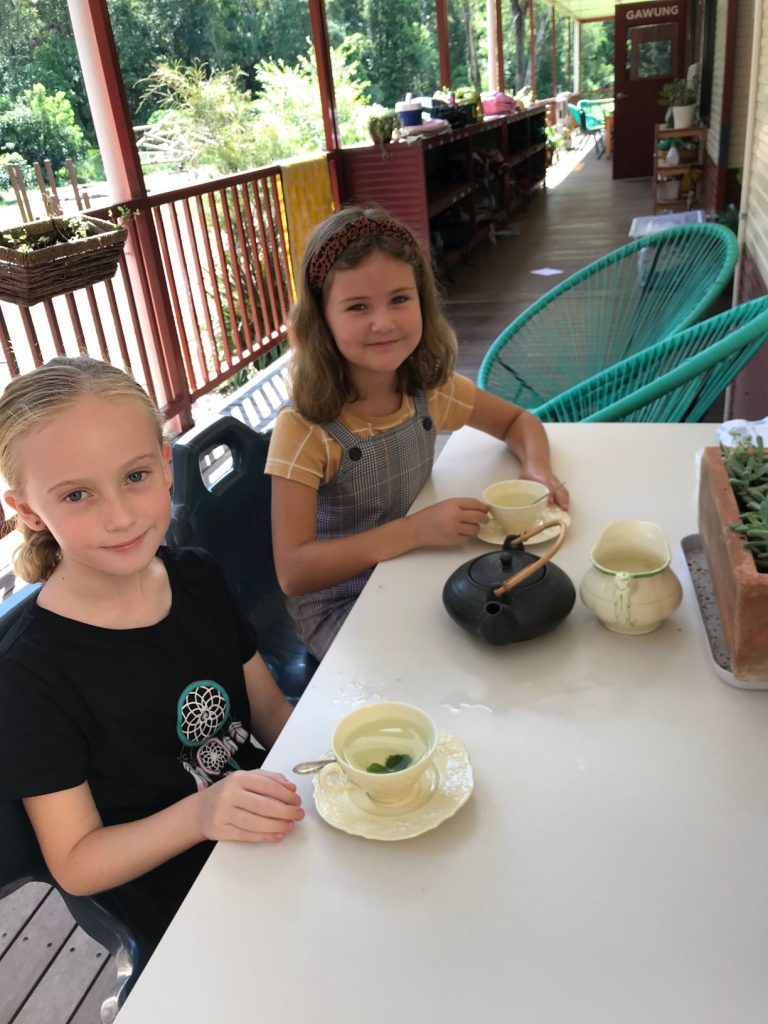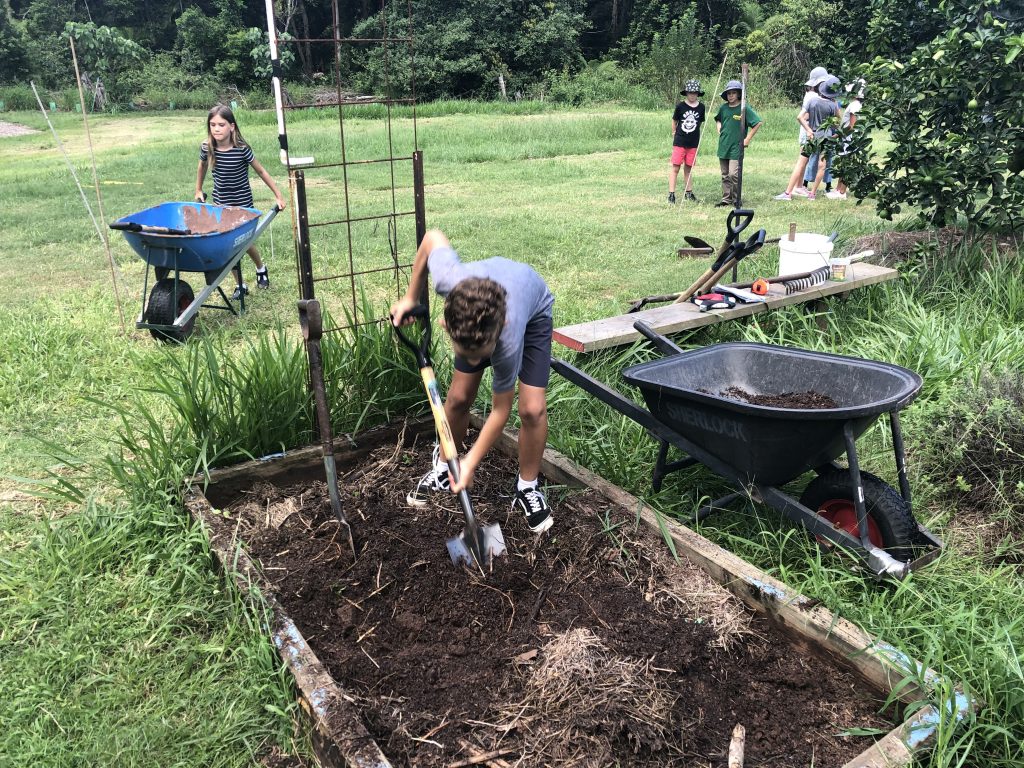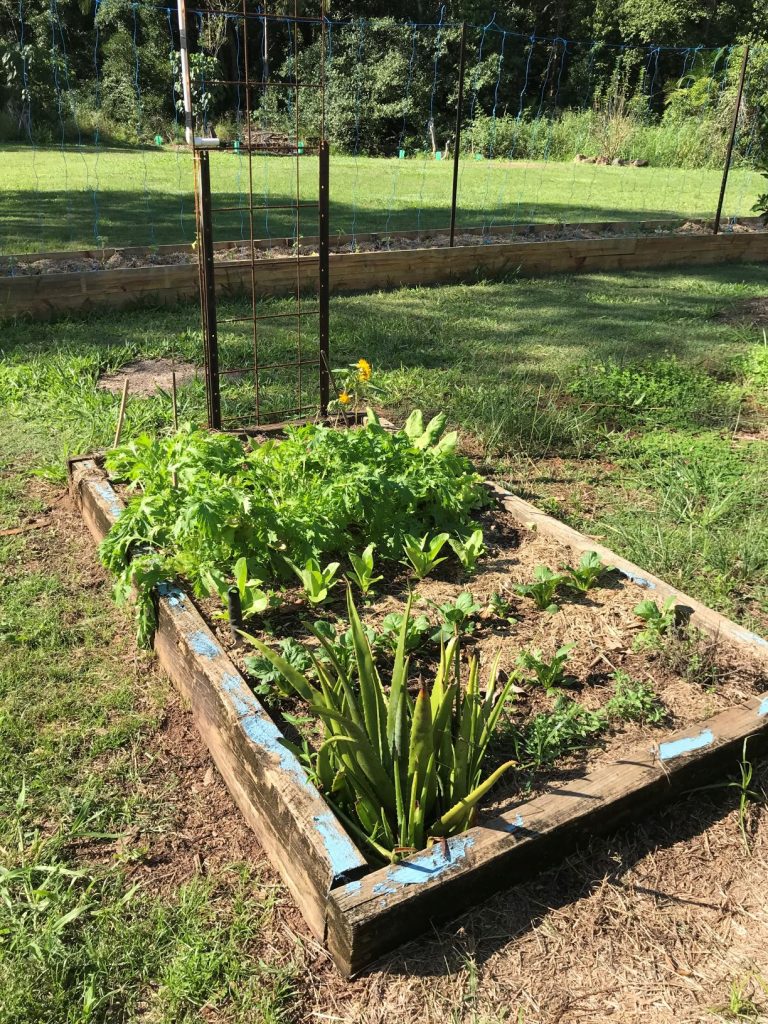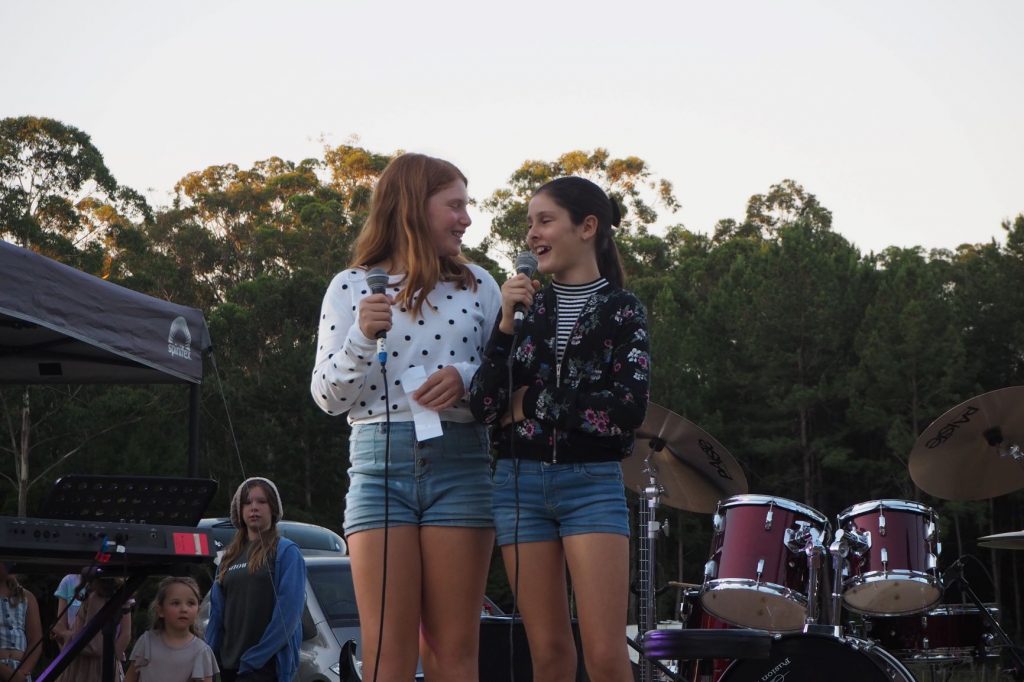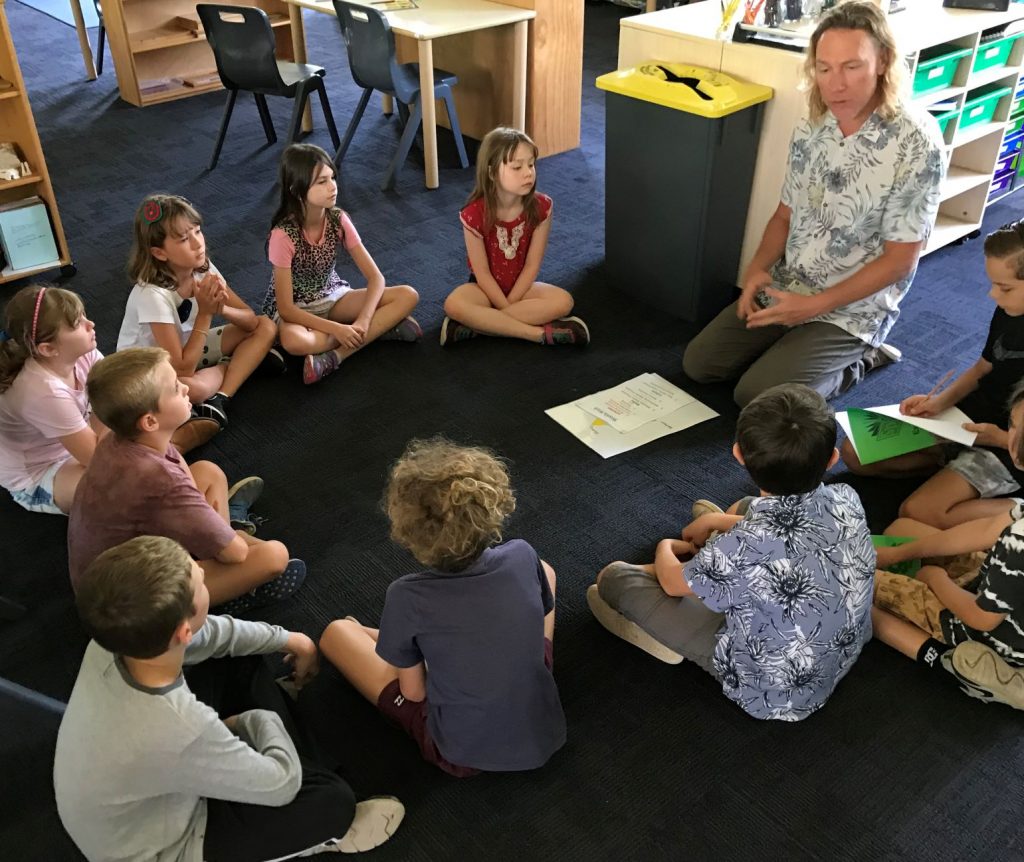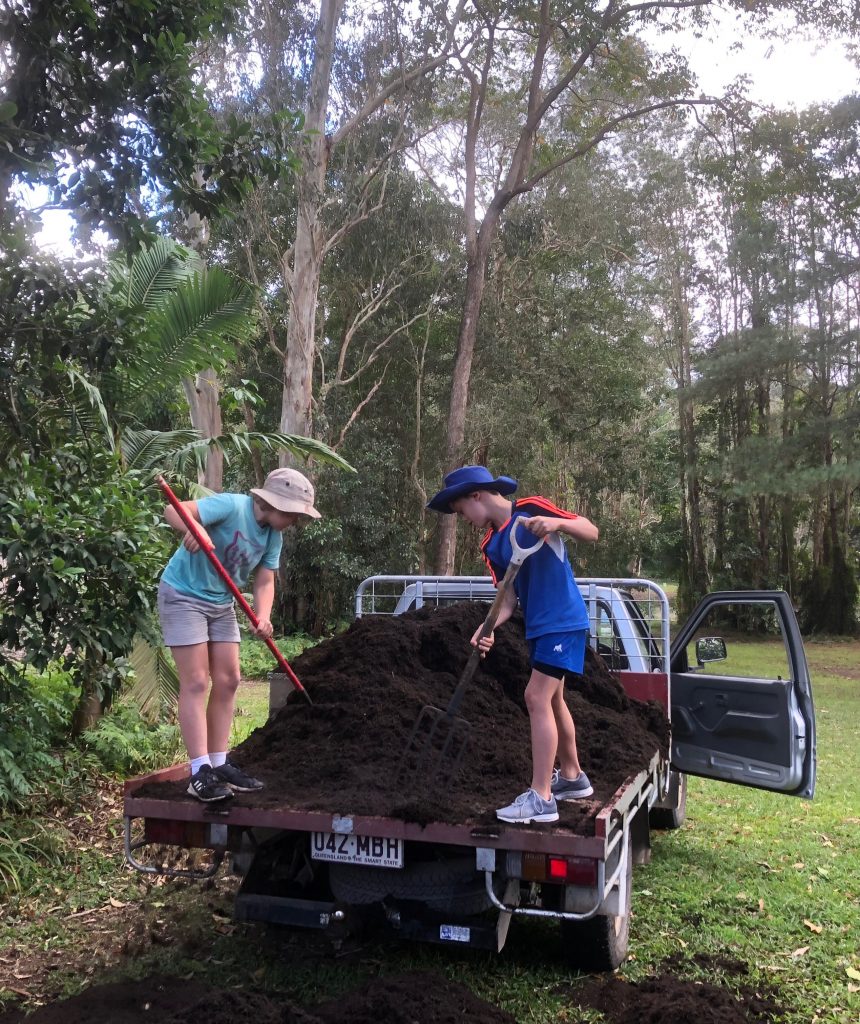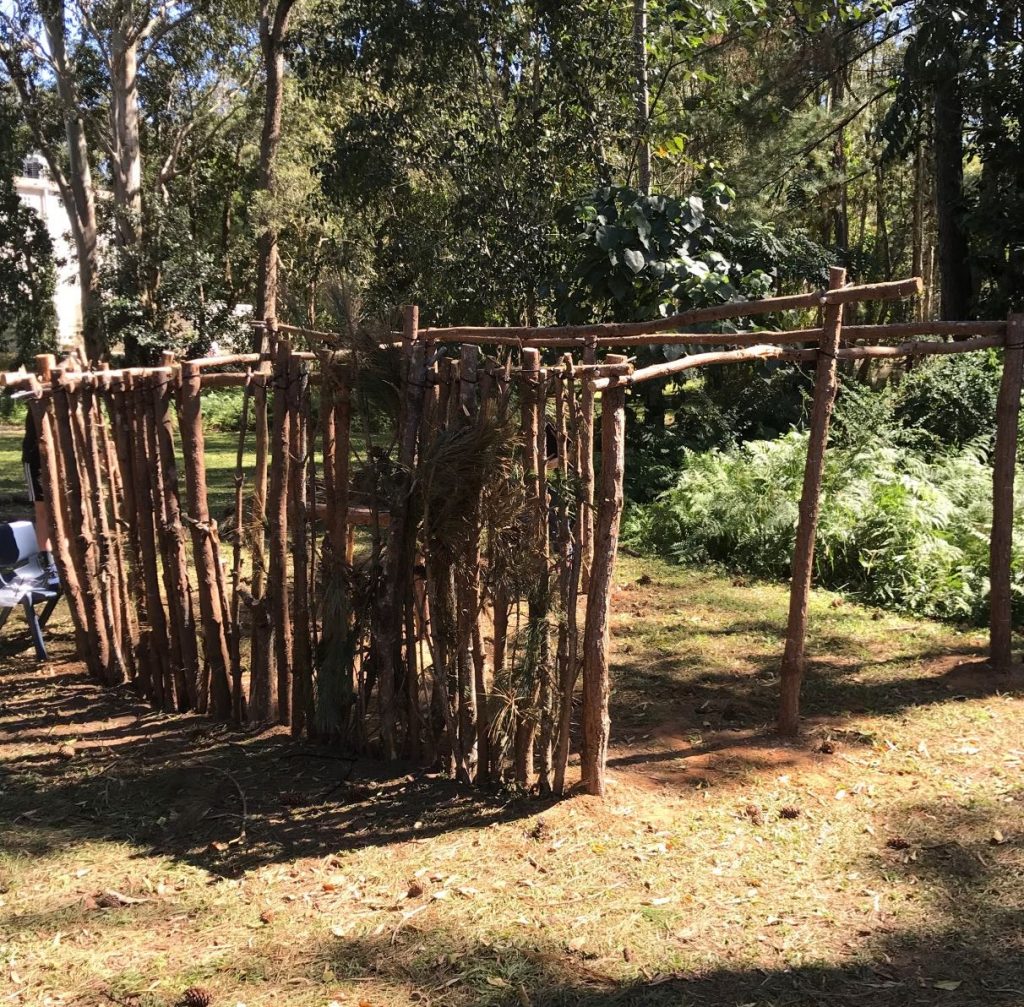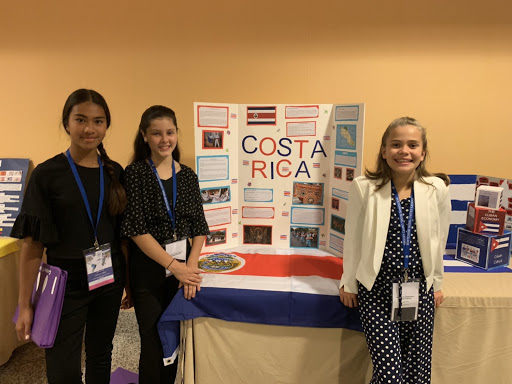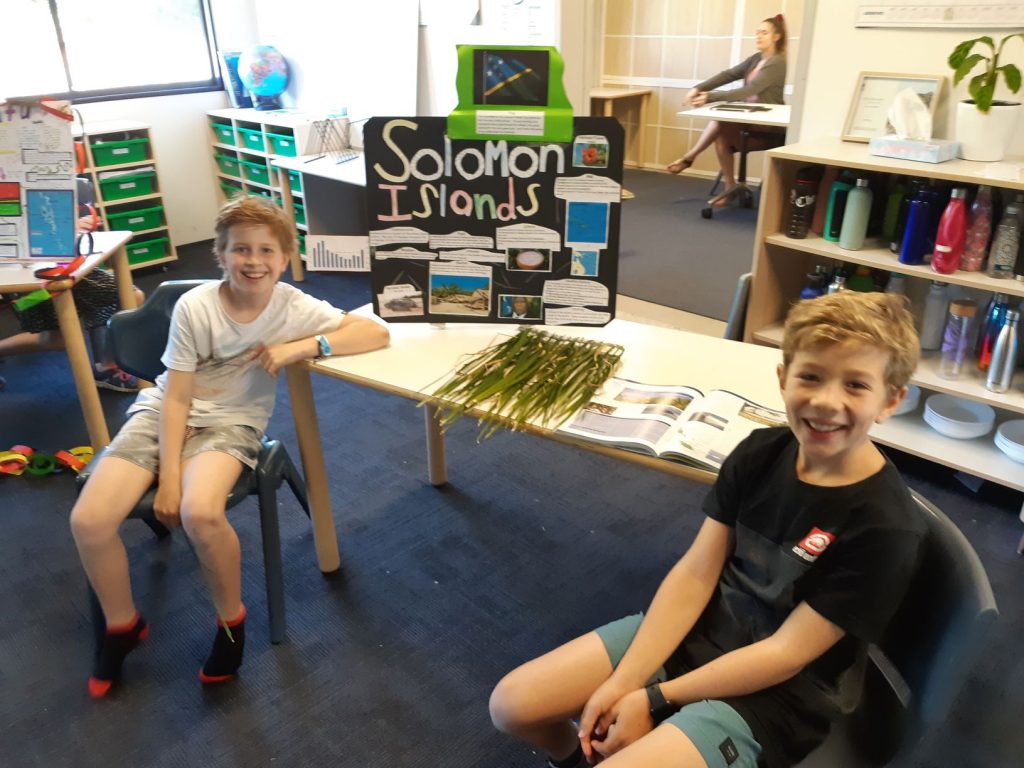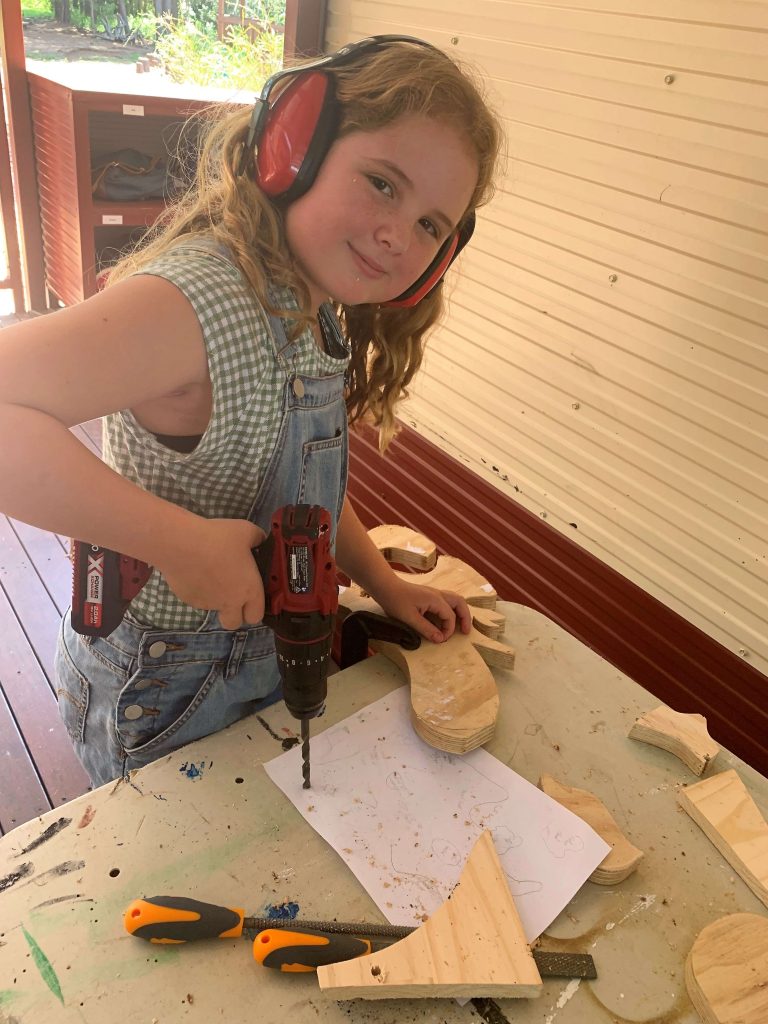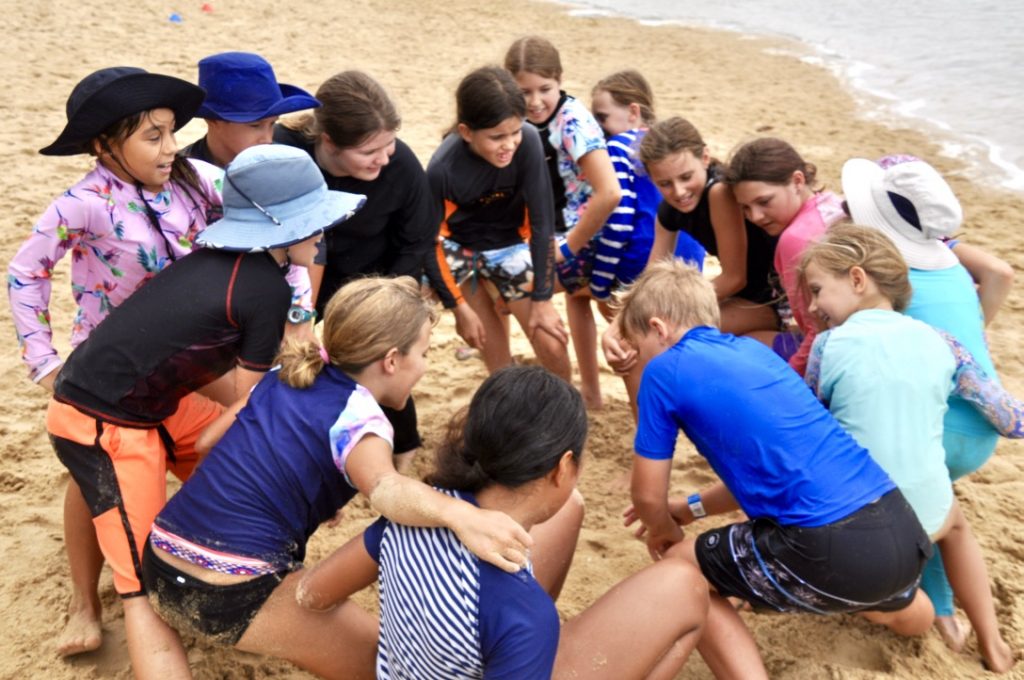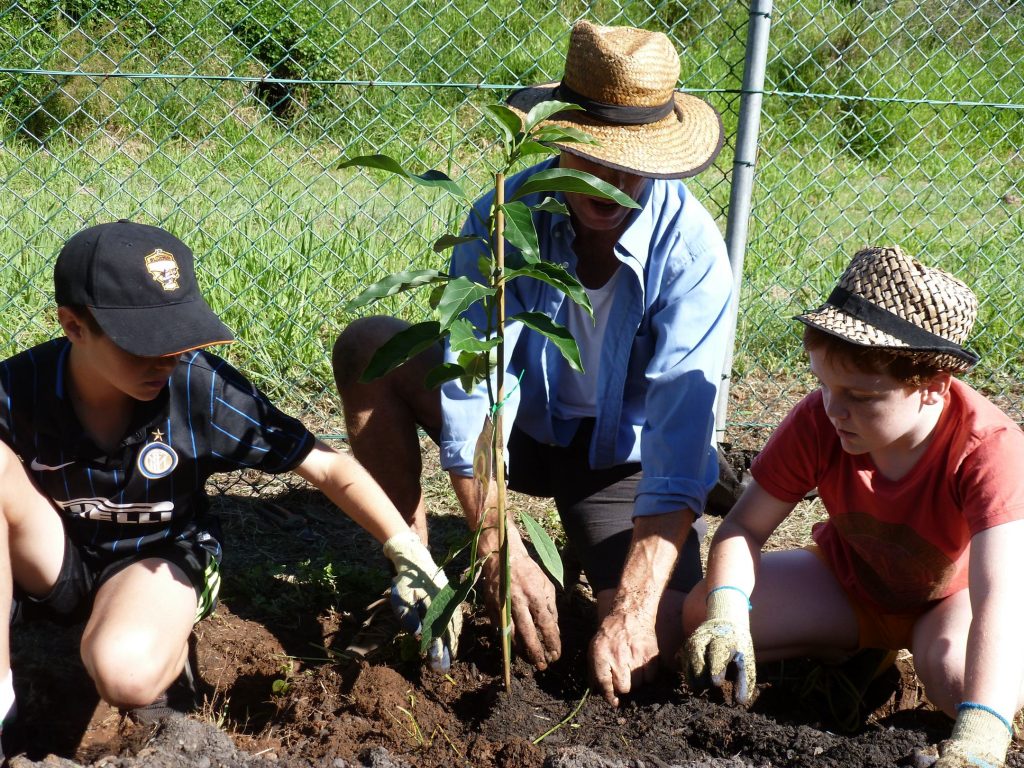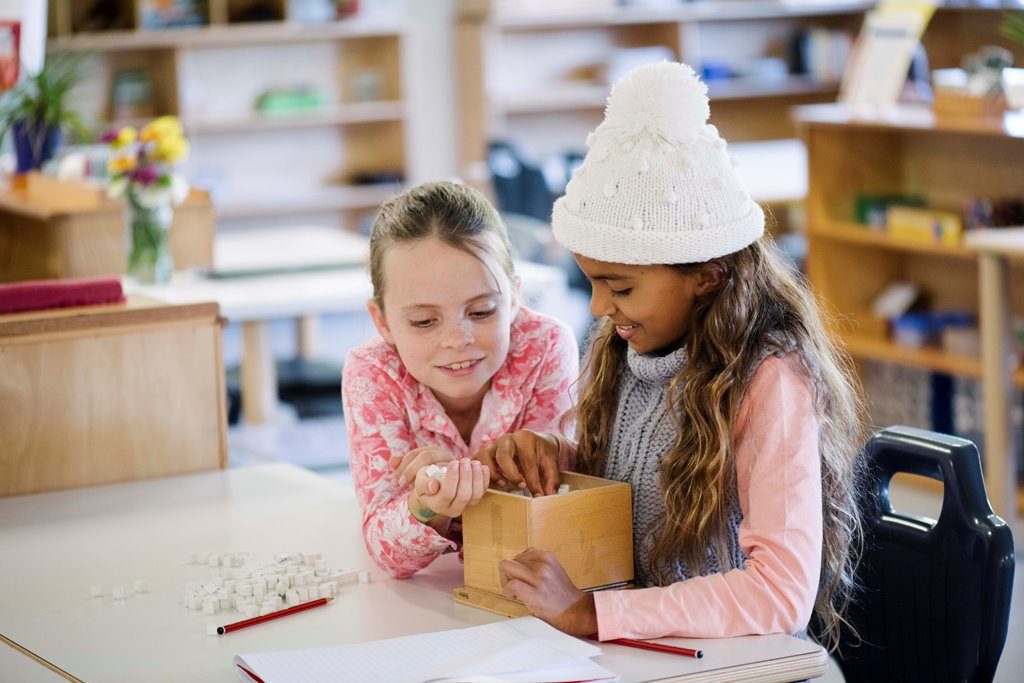The Senior Primary Program at MIC
In the Senior Primary School (Years 4 to 6), learning experiences lead children from a comprehension of the concrete to an understanding of the abstract. Learning spaces provide maximum opportunity for the children to learn from and with each other. Skill acquisition at this stage of development supports the child as they weigh options, examine contradictory evidence, tolerate differences of opinion, and make connections among different learning concepts and personal experience. These children are avid consumers of knowledge and deliberate critics of logic.
You walk into a room of our Senior Primary children and the first thing you notice is the dynamic learning space with open shelves, abundant with Montessori materials. This is not a silent space, rather, there is a hum of activity as children discuss and collaborate on their work. One child is quietly illustrating a finished project, nearby two others are working on the cubing of a three digit number using the wooden cubing material, which teaches them to analyse and question in a mathematical way, while another small group sits on the floor – working together to try and figure out how to organise their most recent fundraising event.
This is a normal day in a MIC Senior Primary classroom.
The morning opens with each student using their diary to plan their day. Following this, they organise themselves into group or individual work, depending on their preference. You will see mathematical materials being used, grammar materials laid out, small numbers of children huddled in the library where they pour over books for research, others venturing out for a guided bushwalk, and a child playing the ukulele on the deck while another writes lyrics.
A question about cyclones and local weather patterns becomes a focus of study on the impact of weather on the college campus. A flood marker is constructed out of wood, painted and dug into the ground at a nearby creek. Regular monitoring of rainfall and changing creek levels follows, and at the end of the term, a presentation of their findings is given to their peers. They are now more deeply connected with their local environment through this initial study of global weather patterns.
In our classrooms children turn real-life experiences into ideas and concepts, so they can make sense of the world they live in. It’s hands-on learning. Our children discuss, scrutinize, question, unearth, make friends, play, resolve conflicts, and grow.
